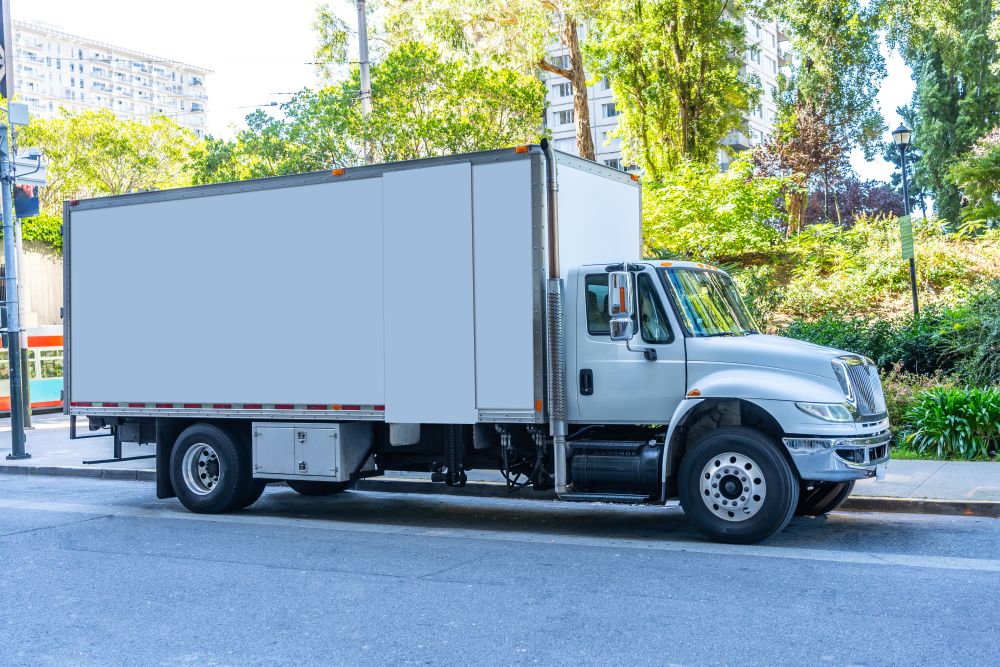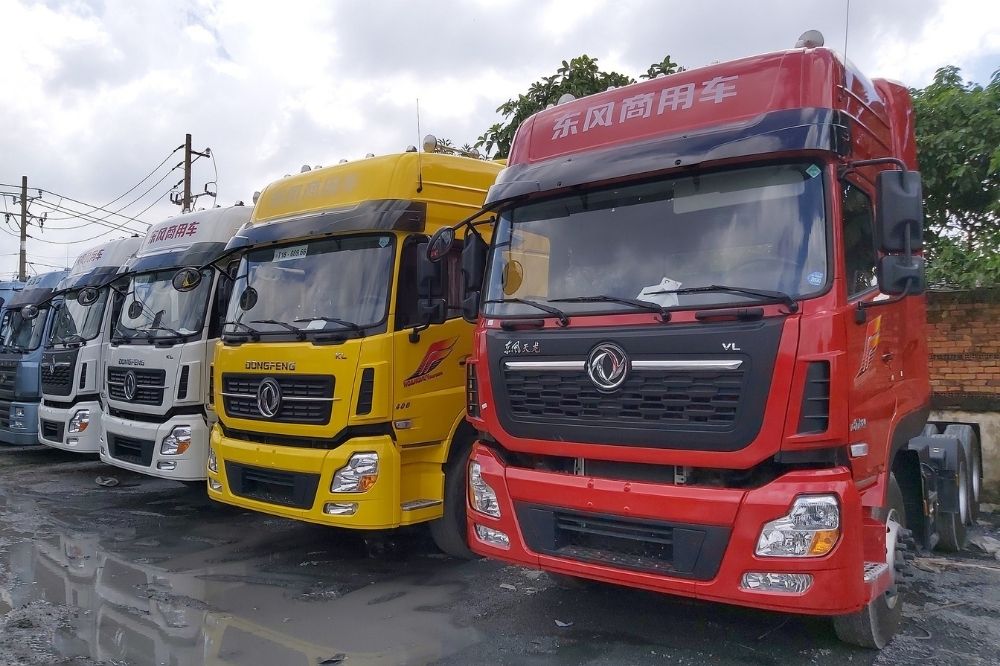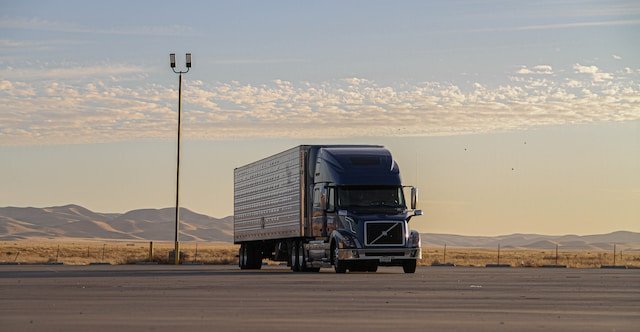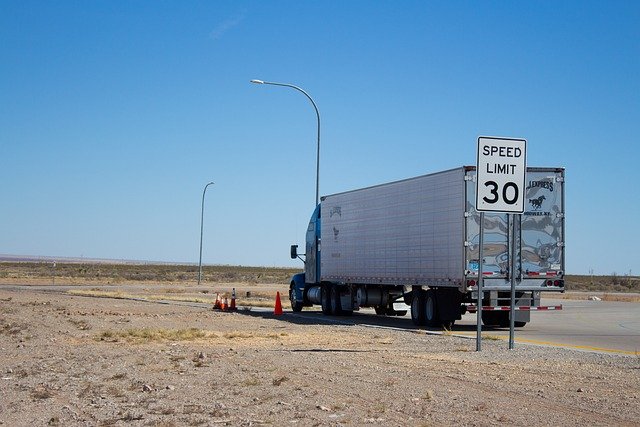
Box trucks are essential for business owners in delivery, logistics, and moving services. While they’re vital parts of these businesses, they’re also expensive to get your hands on.
Financing helps owner-operators and companies grow a box truck fleet without large upfront costs. A good credit score improves loan terms, but lenders also consider a company’s monthly revenue and other factors.
In this guide, we’ll cover financing options, approval tips, and managing consistent monthly revenue to help with financing.
What is Commercial Box Truck Financing?
Commercial box truck financing programs provide a way for businesses to purchase or lease box trucks without paying the full cost upfront.
Instead of spending a large amount of cash all at once, trucking companies can spread the expense over time through fixed monthly payments. These financing solutions make it easier to acquire a truck while keeping cash flow available for other business needs.
Commercial truck financing can be done through loans, leases, or specialized equipment financing.
A loan lets you own the truck outright once it’s paid off, while leasing gives you access to a truck with lower monthly payments and the option to upgrade at the end of the lease. Equipment financing is similar to a loan, but it’s specifically designed for commercial vehicles, often covering the full cost of the truck.
Who Qualifies for Box Truck Loans?
To qualify for a box truck loan, most lenders look at credit score, time in business, and revenue.
A good business credit score improves your chances of getting approved with better terms. Some lenders work with lower scores if other factors are strong.

Many box truck financing programs prefer businesses operating for at least a year, but startups may still qualify with a strong financial plan or a larger down payment. Steady cash flow is also important since lenders want to see that you can handle monthly payments.
Box truck financing solutions are common for various businesses that rely on transportation. Owner-operators, trucking companies, logistics providers, and contractors often look towards commercial truck financing to purchase or expand their fleets.
Moving companies, delivery services, and independent couriers also use box truck loans to keep up with demand.
Key Benefits of Financing a Box Truck
The biggest advantage of different box truck financing options is that they help businesses avoid large upfront costs, which can be a major barrier to growth.
With commercial fleet financing, companies can invest in new vehicles without depleting their working capital. This is especially beneficial for small businesses, startups, and expanding fleets.
Predictability is another benefit. A box truck finance solution works on structured monthly payments, so businesses can better plan their budgets and manage expenses this way.
In some cases, financing can even offer tax benefits, as payments and interest could be tax deductible as business expenses.
Ultimately, box truck financing makes it easier to expand your fleet. Whether adding your first truck or scaling up to meet demand, flexible loan and lease options allow you to grow without putting too much strain on your finances.

Comparing Your Financing Choices
If you’re looking for commercial vehicle financing, you have three main options to consider, each with its pros and cons:
- Traditional bank loans – Offer low interest rates but require strong credit and a long business history. Approval can take time, and a large down payment may be needed.
- Equipment financing – Uses the truck as collateral, making it easier to qualify. Payments are spread over time, and you own the truck once it’s paid off.
- Leasing options – Lower monthly payments with the flexibility to upgrade or return the truck at the end of the lease. Ideal for businesses that want to avoid long-term ownership commitments.
What Influences Your Financing Rates?
One of the most important aspects of choosing box truck financing is the financing rate on offer. Here are the main factors that influence this rate:
- Your credit history – A higher credit score helps secure lower interest rates, while a lower score may lead to higher costs or stricter terms. This could be your personal credit history as well as your trade business credit score.
- Down payment considerations – A larger down payment reduces the loan amount, which means lower monthly payments and better interest rates.
- Truck condition and age – Newer trucks often qualify for better rates, while older trucks may come with higher interest due to depreciation and maintenance risks.
- Your business finances – Lenders look at revenue, time in business, and overall financial health to assess risk and determine loan terms.
How to Apply for Commercial Box Truck Financing
While all commercial trucking industry financing providers have different systems, here’s the general process.
To apply for commercial truck financing, review your credit score and business finances to understand your eligibility.
Gather all the essential documents, including financial statements, tax returns, bank statements, and a detailed business plan. You’ll also need information about the truck, like its make, model, age, and price.

Submit your box truck financing application to a lender, who will review your credit history, revenue, and overall financial stability.
The approval process can take a few hours to several days, depending on the lender. If approved, you’ll receive financing terms outlining your loan amount, interest rate, and repayment schedule.
Tips for Securing the Best Loan
While it’s not always entirely within your control, here are a few things trucking companies can do to improve their financing opportunities:
- Improving your credit score – Pay off any outstanding debts you owe, make timely payments, and avoid new credit inquiries to boost your score and qualify for better rates.
- Creating a strong business plan – A clear plan showing revenue projections, industry demand, and growth strategy helps lenders see your ability to repay the loan.
- Organizing your financials – Keep accurate records of income, expenses, and tax filings to show lenders that your business is stable and financially responsible.
Getting Approved with a Low Credit Score
Getting approved for box truck financing with a low credit score is possible, but it often comes with higher interest rates and stricter terms.
However, there are lenders out there, like Mission Financial Services, who specialize in bad credit loans, offering financing options for higher-risk borrowers. This means no matter your financial situation, it’s always possible to find the right financing for your box truck.
Generally, with low credit score loans, you can expect larger down payments, shorter loan terms, or the need for collateral to offset the lender’s risk. However, you may be able to bypass these issues if you can show the lender that you are financially responsible and that your business is in a good position to repay the loan.
Ultimately, a credit score is just one factor, and using it alone does not provide a holistic overview of your financial situation and trustworthiness.
However, it’s still always a good idea to improve your approval chances by working on paying down existing debt, providing proof of steady business income, and considering a co-signer or higher upfront investment.
Conclusion
Financing a box truck is a smart way for business owners to grow without straining cash flow. Whether you’re an owner-operator or expanding a fleet, the right loan can make all the difference.
Ready to get started? Explore your options with Mission Financial Services to see how you can get tailored financing, regardless of your credit score.
























